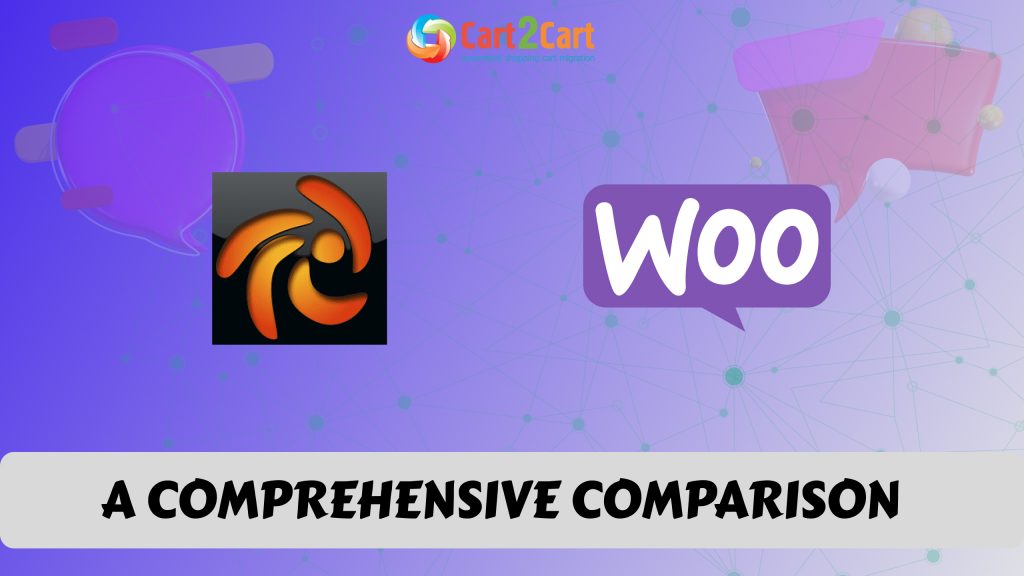Zen Cart Migration
Looking for a seamless Zen Cart Migration? Cart2Cart offers a fully automated, secure, and fast solution to migrate from Zen Cart to a better platform, typically completed in just a few hours. We guarantee zero downtime for your existing Zen Cart store during the entire process, so you never lose a sale. Trust Cart2Cart to expertly handle your Zen Cart migration, transferring all your critical data, including products, customers, orders, SEO URLs, and more, with the utmost precision and security. Our proven process ensures a smooth transition, minimizing disruption and maximizing your future growth potential.Supported versions: Zen Cart 1.2.x - 1.5.8

How to Migrate to Zen Cart
This step-by-step guide details how to securely migrate to Zen Cart from any other e-commerce platform using Cart2Cart, ensuring complete data integrity for your online storefront.
- Register and Initiate: Create a Cart2Cart account to begin your platform switch. This initial step is free and takes only a minute.
- Connect Your Source Store: Provide the credentials for your current platform to allow secure API access for the data transfer.
- Connect Zen Cart Target Store: Download the Connection Bridge file, which is required for this transfer. Unzip it and upload the 'bridge2cart' folder to your Zen Cart store's root directory via FTP.
- Select Data and Options: Choose which data entities to move, including products, SKUs, and customer orders. Configure crucial options like 301 redirects to preserve your SEO rankings.
- Run a Free Demo Migration: Launch a free test transfer to move a limited set of your data. This allows you to check the results directly in your new Zen Cart store before the full replatforming.
- Launch the Full Migration: Once satisfied with the demo, start the full migration. The process runs on our servers, ensuring no downtime for your business.
Pro-Tip: To establish a secure connection, you must install the Cart2Cart Zen Cart Migration module. Also, be aware that multi-store features and SEO options for blogs have some migration limitations.
Automated migration
Just set up the migration and choose the entities to move – the service will do the rest.
Try It Free
Data Migration Service Package
Delegate the job to the highly-skilled migration experts and get the job done.
Choose Package
What data can be migrated from/to Zen Cart
-
Products
-
Product Categories
-
Manufacturers
-
Taxes
-
Customers
-
Orders
-
Reviews
-
Multistore
-
Multiple Languages
Choose all the extra migration options and get 40% off their total Price
We’re committed to protecting our customers’ data security. Check out our Security Policy
The Cart2Cart service has all the necessary functionality to migrate store databases on Zen Cart of any size and complexity. Below are the most popular migration directions among our customers:
Help Center
Let’s figure out everything about Zen Cart migration through
Cart2Cart.
Discover our checklist, related articles, and answers on frequently asked questions.
Pay only for what you migrate - the cost depends on the number of records to be moved
Get Your Instant Zen Cart Migration Estimate
Use our transparent calculator to receive an instant, personalized Zen Cart migration cost estimate tailored to your exact needs, with no hidden fees. Understand your complete Zen Cart migration pricing upfront and confidently plan your move, knowing your final Zen Cart migration price is clear from the start.
Zen Cart Monthly Pulse: The Stability Mandate in a Volatile Market
In an e-commerce landscape dominated by the high-growth narratives of SaaS platforms, Zen Cart continues to execute a markedly different strategy: one of deliberate stability, deep customization, and long-term value for its dedicated user base. This month's analysis reveals a platform not chasing headlines, but methodically reinforcing its core architecture. The story of Zen Cart is one of resilience, serving a critical market segment that prioritizes data ownership and operational control over fleeting trends. Our latest pulse indicates a continued commitment to this foundational promise.
Defining Its Niche: An Analysis of Market Footprint
While Zen Cart's overall market share remains modest, holding steady in the niche of self-hosted, open-source solutions, its value cannot be measured by user acquisition alone. Current data points to Zen Cart powering a significant number of established online stores with complex catalogs and long histories. This is not a platform for pop-up shops; it is an engine for enduring businesses. Its strength lies in its total cost of ownership, which remains highly competitive for merchants with the technical resources to manage their own environment, insulating them from the escalating subscription and transaction fees common across the SaaS ecosystem.
Core Architectural Fortification
The most significant development this past month was the rollout of a maintenance release focused on infrastructure hardening. The update delivers full compatibility with PHP 8.2, a critical step that ensures both enhanced performance and access to modern security protocols. For merchants, this seemingly minor update is paramount. It future-proofs their investment, mitigates security vulnerabilities inherent in older PHP versions, and provides a tangible, if subtle, boost to page load times and server response efficiency. This is a direct investment in the conversion rates and SEO health of every store on the platform.
The Community-Driven Development Engine
The Zen Cart ecosystem continues to thrive not through a centralized app store, but through its vibrant, community-led developer network. This month saw a notable uptick in updates to third-party modules, particularly for payment and shipping integrations. Key plugins for major gateways like Stripe and PayPal received significant updates to support the latest API versions and security standards. This organic evolution demonstrates the platform's core advantage: unmatched adaptability. Merchants are not beholden to a corporate roadmap; they can commission or find solutions tailored to their unique operational needs, a flexibility that is increasingly rare.
Streamlining Complex Catalog Management
While there was no single "flagship" feature release this month, a series of incremental improvements were made to the administrative backend, specifically around attribute management. The updated interface now allows for more efficient bulk editing of product options, a direct response to feedback from merchants managing thousands of SKUs with complex variations. The strategic value here is a significant reduction in administrative overhead. For a small team managing a large inventory, saving hours on product data entry directly translates to more time for marketing and customer service, driving operational leverage.
A Proactive Security Posture
In line with its focus on core stability, the latest release included patches for several potential low-to-medium severity vulnerabilities, including improved input sanitization to prevent Cross-Site Scripting (XSS) attempts. For business leaders, this proactive security posture is a non-negotiable requirement. By addressing these issues before they can be exploited, Zen Cart reinforces its reputation as a secure, reliable platform for processing transactions and handling sensitive customer data, which is essential for maintaining PCI DSS compliance and customer trust.
Enhancing Cross-Border Commerce Capabilities
A quiet but important update was pushed to the platform's core tax calculation engine. The new logic provides more granular control over region-specific tax rules, particularly improving support for complex VAT scenarios within the European Union. This enhancement directly benefits merchants with a global footprint, simplifying the intricate process of international tax compliance. It signals that the platform's development remains attuned to the practical challenges of global e-commerce, enabling its merchants to expand their reach with greater confidence.
A Case Study in Platform Loyalty
While new migrations to legacy platforms are rare, this month saw a notable relaunch from "Automotive Restoration Supply," a major online retailer of classic car parts. Instead of migrating away, the company invested heavily in a complete redesign and architectural upgrade on the latest version of Zen Cart. Their decision was reportedly driven by the platform's ability to handle their massive, highly specific catalog and their desire to avoid the punitive transaction fees of other platforms at their sales volume. This serves as a powerful case study, proving that for established businesses where control and cost-efficiency are paramount, Zen Cart remains a highly strategic and viable choice.
Source: Analysis based on Zen Cart official release notes, community developer forums, and third-party e-commerce technology tracking data.
Just set up the migration and choose the entities to move – the service will do the rest.
Try It FreeDelegate the job to the highly-skilled migration experts and get the job done.
Choose Package











 January 27, 2025
January 27, 2025 




